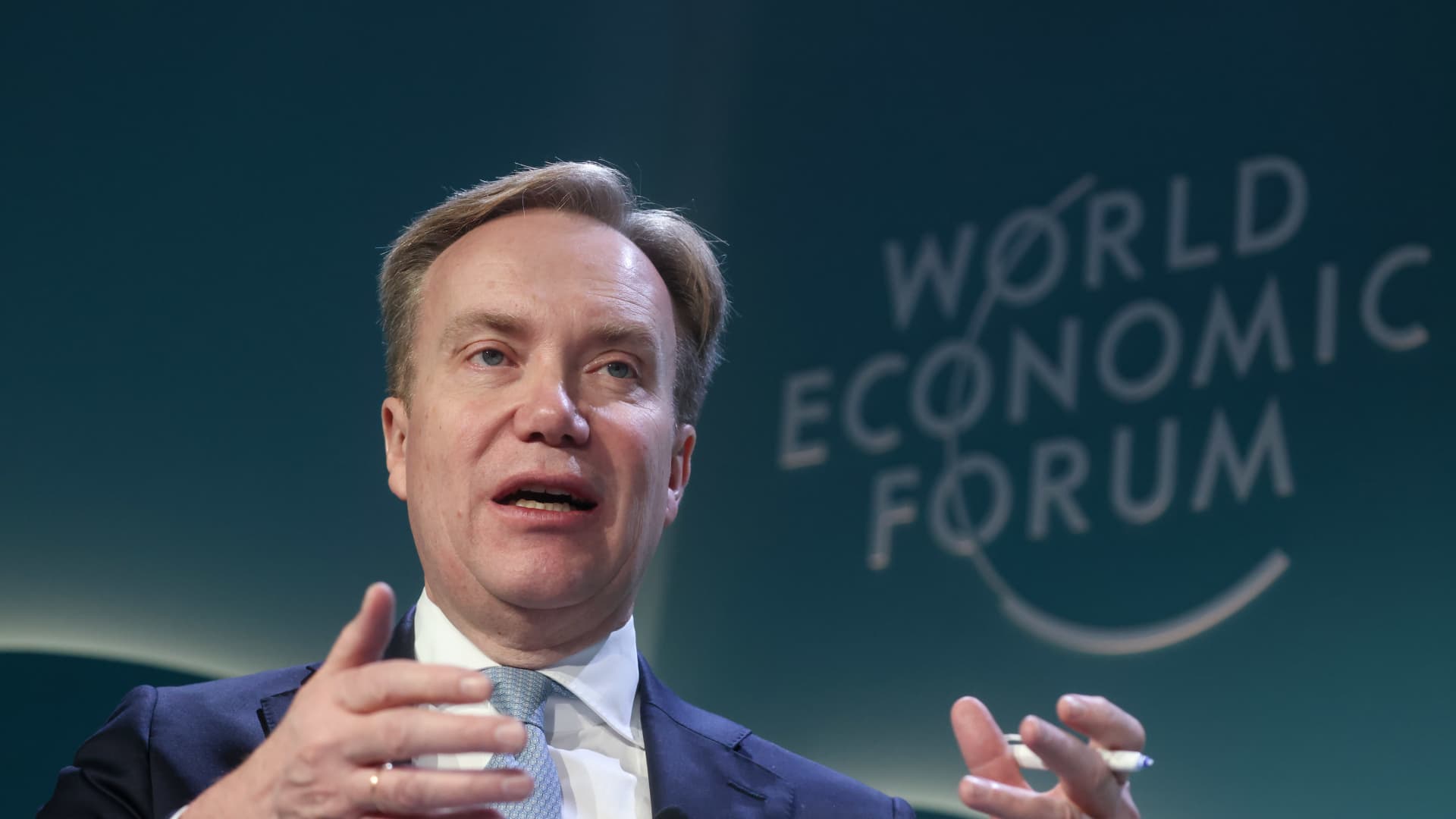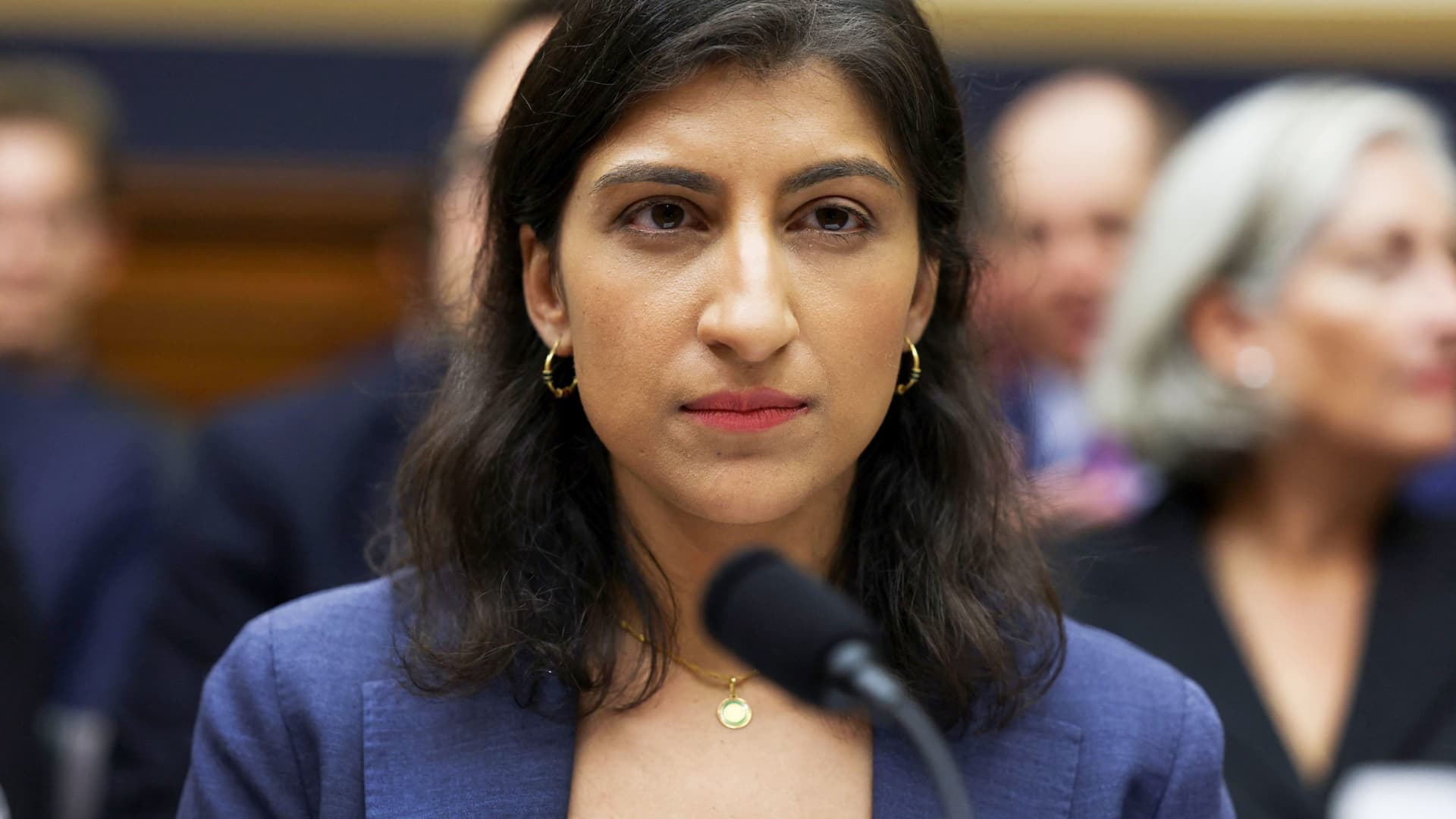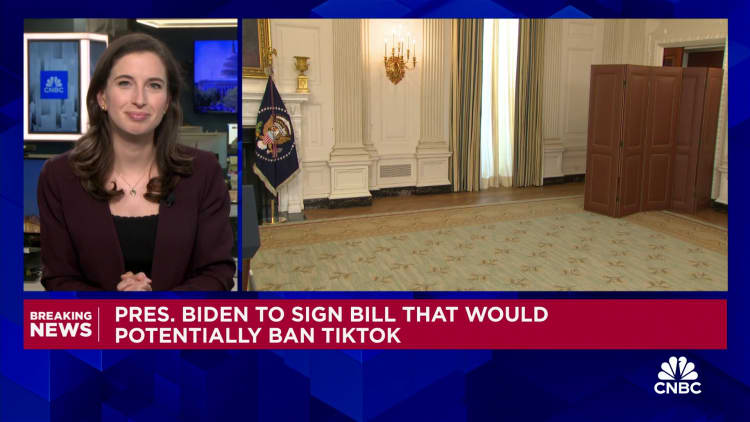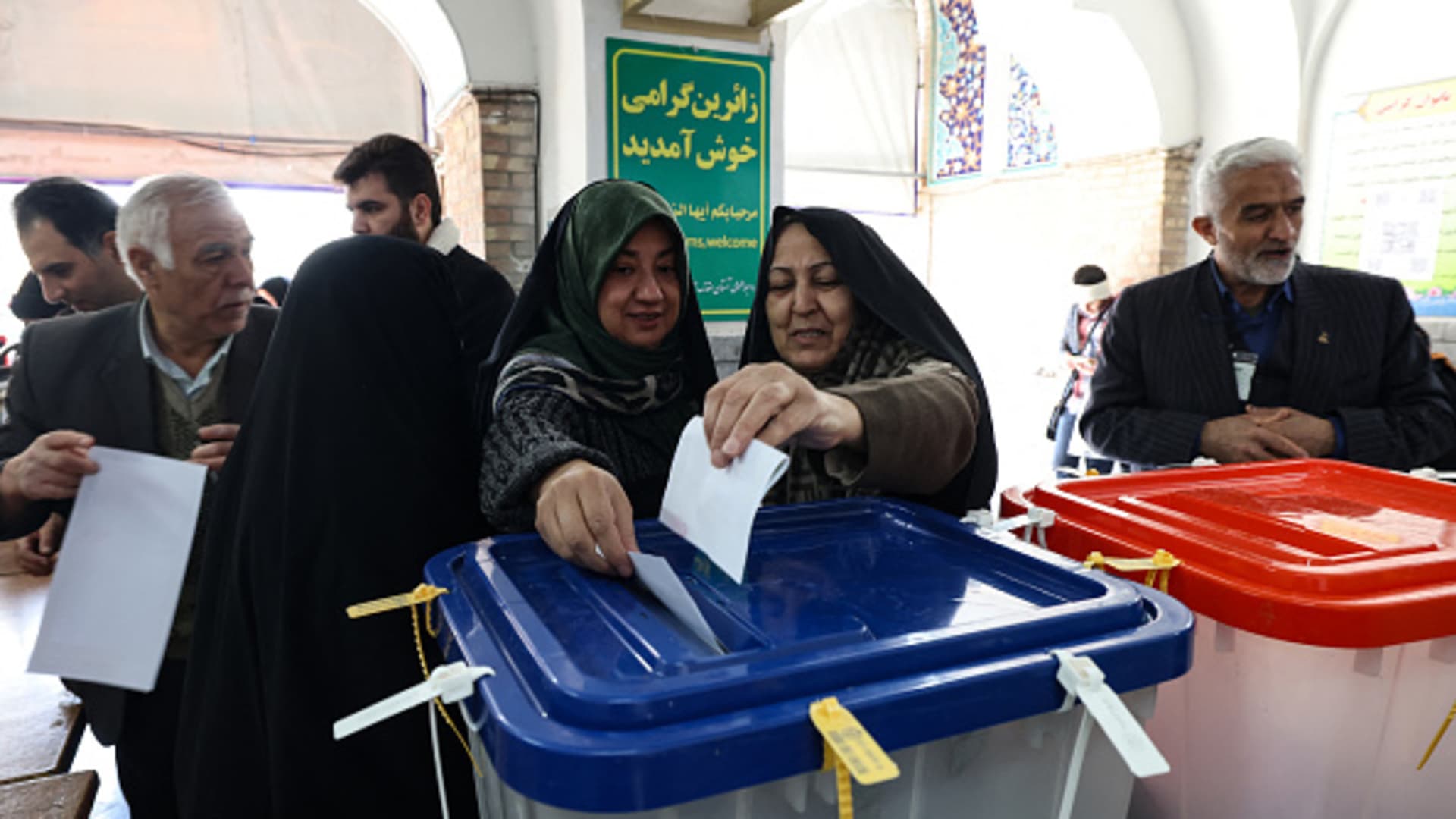Iranian women cast their votes at a polling station during elections to select members of parliament and a key clerical body in Tehran on March 1, 2024.
ATTA KENARE | AFP
Iran holds its parliamentary elections on Friday, the first vote for Iranians since a nationwide women’s rights protest movement rocked the country in 2022.
About 15,000 candidates are vying for places in Iran’s 290-seat parliament, the Islamic Consultative Assembly. The vote will also determine future members of the 88-member Council of Experts, an eight-year-term group of clerics who will choose Iran’s next supreme leader once the current leader, Ayatollah Ali Khamenei, resigns or dies. Khamenei is 84.
But voter turnout is expected to be low as many Iranians are boycotting the vote because they are disillusioned and angry at a system they say is rigged or has failed to improve their lives amid an economic crisis and a widespread lack of social and political freedoms .
“Nobody cares about it anymore. Nobody will participate and all nominees are ‘approved’ by the government, which means people hate them,” Mehdi, a Tehran-based business owner, told CNBC. “The numbers will be so low that the government will probably fake them.” Fearing reprisals from the Iranian government, Mehdi asked that only his first name be used.
Jailed Iranian activist and Nobel Peace Prize winner Narges Mohammadi called for a boycott and international condemnation of the elections in a statement, saying the boycott was “not only a political necessity but also a moral duty.”
“Transition from the despotic religious regime is a national demand and the only way for the survival of Iran, Iranians and our humanity,” Mohammadi added.
Sanam Vakil, director of the Middle East and North Africa program at Chatham House, told CNBC that people are boycotting “partly in protest, partly out of disinterest.”
“There is a very clear awareness that the choice of one of these institutions will not have an immediate impact on policy or policy,” she said. “And giving open legitimacy to the political system after it has disregarded and abused people and civil rights is simply too much.”
Country analysts expect a nationwide voter turnout of between 30% and 50%, while the state polling institute ISPA estimates voter turnout in Tehran at just 23.5% and 38.5% nationwide. The numbers would represent a continuation of recent years; In 2020, official voter turnout in parliamentary elections in Iran was the lowest ever, at just over 40%, and in 2021, voter turnout in presidential elections was the lowest ever.
Iran’s Supreme Leader Ayatollah Ali Khamenei speaks to the media after casting his vote in the Iranian Parliament and Assembly of Experts elections at the leadership’s office in Tehran, Iran, March 1, 2024.
Photo by Morteza Nikoubazl | OnlyPhoto
The election itself is also extremely restrictive, as the Iranian government only allows certain pre-approved candidates to run.
Friday’s elections “are the most restricted and exclusionary elections in the history of the Islamic Republic,” said Iranian historian and analyst Arash Azizi.
“Most reformists and even many centrist conservatives were barred from running. So there is very little choice. Second, Ayatollah Khamenei has almost absolute power in the regime and all other bodies, including Parliament, are largely ceremonial in nature and have little power over the Supreme Leader.”
“Woman, Life, Freedom” protests
The boycott and voter frustration follow years of economic hardship and increasing suppression of dissent and expression.
In September 2022, the death in police custody of a young Kurdish Iranian woman named Mahsa Amini lit the fuse that sparked months of protests and posed the biggest challenge to Iran’s hardline rule in decades.
Amini, just 22, was arrested for allegedly unlawfully wearing her hijab, the headscarf that women are required to wear in the extremely conservative Islamic Republic of Iran. She died after reportedly suffering multiple blows to the head. Iranian authorities claimed no wrongdoing and said Amini died of a heart attack; But her family and many Iranians accused the government of a cover-up.
A protester holds a portrait of Mahsa Amini during a demonstration in support of Amini, a young Iranian woman who died on Istiklal Avenue in Istanbul after being arrested by the Islamic Republic’s moral police in Tehran on September 20, 2022.
Ozan Kose | AFP | Getty Images
The protests spread across the country, evolving from a focus on women’s rights to a demand for the overthrow of the entire Iranian regime. They led to heavy crackdowns and frequent internet shutdowns by Iranian authorities, as well as thousands of arrests and several executions.
In this context, it is not surprising that many Iranians have no trust in their country’s political institutions, said Behnam ben Taleblu, senior fellow at the Foundation for Defense of Democracies.
“Iranians no longer see a rigged ballot box as a way to bring about even minor political change. Instead, they have taken to the streets in various rounds of protests since 2017 to express their dissatisfaction with the system as a whole,” he said.
“Disappoint the evildoers”
Ayatollah Khamenei was among the first to cast his vote on Friday and urged others to vote. He derided those who expressed doubts about the election as Iran’s “enemies.”
“Pay attention, make friends happy and disappoint the bad guys,” Khamenei said in televised comments at the polls.
The ouster of all reformist and even many moderate conservative candidates from the political race – including former Iranian President Hassan Rouhani – underscores the direction in which Iran’s leadership wants to take the country, especially as its supreme leader ages.
“Turnout or not, this tightly choreographed process is part of a larger far-right turn in Iranian politics by Khamenei, who is mulling a successor,” Ben Taleblu said. He added that officials may try to increase voter turnout to “feign legitimacy abroad.”
Iran’s Foreign Ministry did not respond to CNBC’s request for comment.
Some hardline politicians have even downplayed the need for high voter turnout, insisting that the Iranian government derives its legitimacy from God rather than the public.
For Azizi and many others, while it is important not to give legitimacy to the elections, what is even more urgent is to find a political alternative that can bring about real change.
“Low voter turnout will once again show that a large majority of Iranians are disillusioned with the Islamic Republic and its institutions,” Azizi said.
“But even a very low voter turnout is unlikely to generate political momentum or make much difference to the daily lives of Iranians,” he added. “Given the obvious disillusionment of the population with the regime’s organs, the task of organizing a political alternative is becoming increasingly urgent for opponents of the Islamic Republic.”
Source link
2024-03-01 11:28:52
www.cnbc.com







